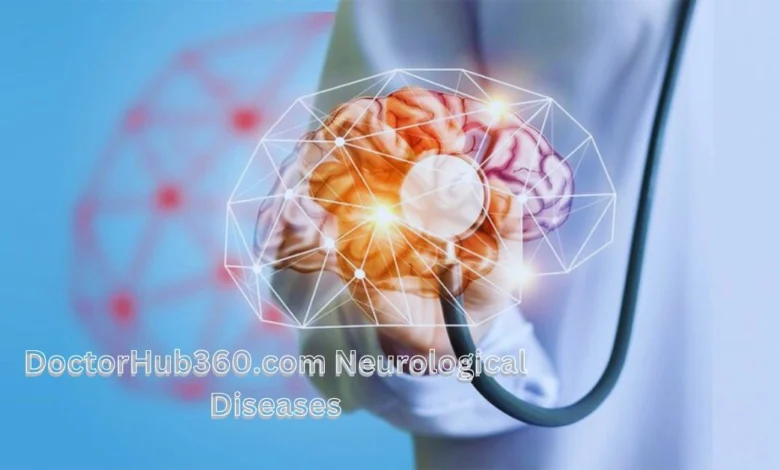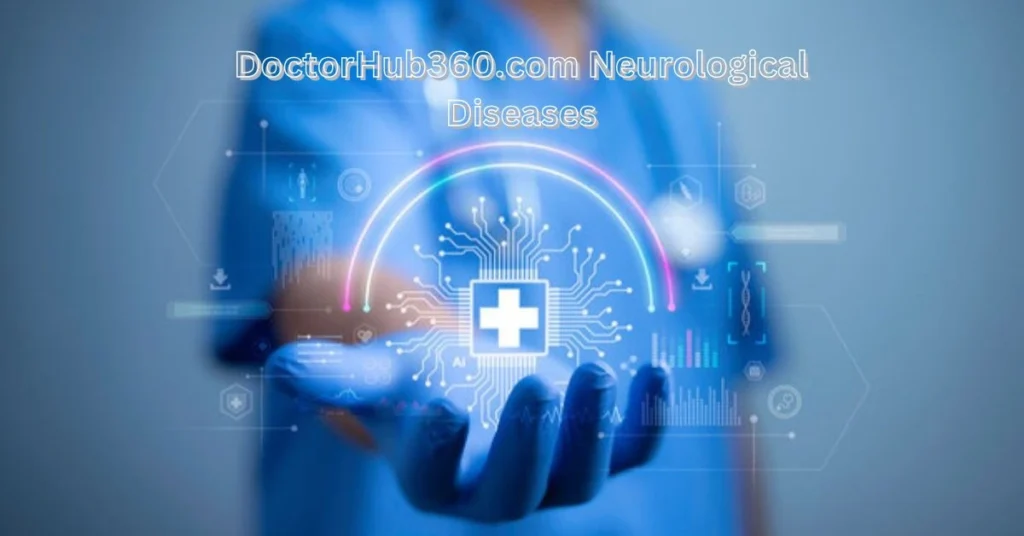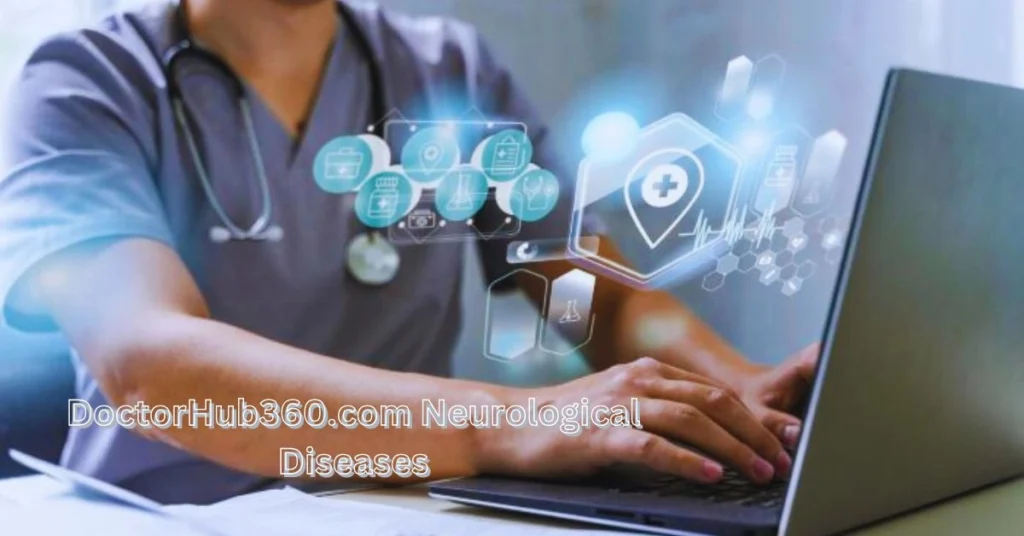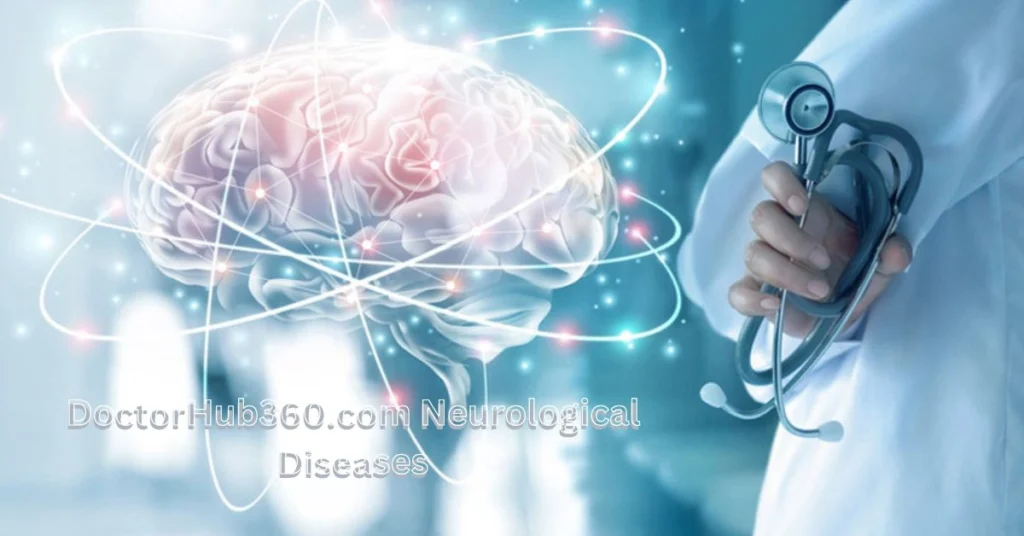DoctorHub360.com Neurological Diseases Innovative Treatments

Introduction to DoctorHub360.com Neurological Diseases
DoctorHub360.com Neurological Diseases pose significant challenges to millions worldwide, affecting everything from motor skills to cognitive functions. These disorders can be complex and debilitating, often requiring multifaceted approaches for effective management and treatment. However, the landscape of healthcare is rapidly evolving with technology at the forefront of this change. DoctorHub360.com Neurological Diseases brings you insights into how innovation is shaping the treatment journey for those affected by these conditions. From advanced diagnostic tools to telemedicine solutions, technology is not just enhancing care; it’s revolutionizing how patients interact with their health providers and manage their symptoms daily. Let’s explore this fascinating intersection between neurology and technology that holds promise for improving lives everywhere.
The Role of Technology in Treating DoctorHub360.com Neurological Diseases

Technology is revolutionizing the treatment landscape for neurological disorders. Innovations are enhancing how healthcare providers approach these complex conditions.
Advanced software and algorithms analyze patient data, enabling personalized treatment plans. This tailored approach improves outcomes by focusing on individual needs rather than a one-size-fits-all solution.
Robotic-assisted therapies have emerged as powerful tools for rehabilitation. They help patients regain motor function through repetitive motion exercises that were once tedious and time-consuming.
Neurostimulation devices offer another avenue of hope. These implantable systems can modulate brain activity to reduce symptoms associated with epilepsy or Parkinson’s disease, providing relief when traditional medications fall short.
Moreover, artificial intelligence plays a pivotal role in predicting disease progression. By examining patterns within vast datasets, AI helps clinicians make informed decisions earlier than ever before.
The integration of technology into neurology not only enhances treatment but also fosters more engaging patient experiences along the journey toward recovery.
Advancements in Diagnosis and Imaging Techniques
Advancements in diagnosis and imaging technologies are revolutionizing the field of neurology. Enhanced MRI techniques now provide sharper images, allowing clinicians to visualize brain structures with unprecedented clarity. These improvements enable early detection of conditions like multiple sclerosis or tumors.
Functional MRI (fMRI) has taken it a step further by measuring brain activity in real-time. This tool helps identify which areas are affected during certain tasks, giving insights into how different neurological disorders impact cognitive function.
Additionally, advancements in machine learning algorithms can analyze vast amounts of imaging data quickly. This capability enhances diagnostic accuracy and reduces human error, ensuring timely interventions for patients.
These cutting-edge tools not only improve understanding but also pave the way for personalized treatment plans tailored to individual needs. The integration of advanced technology is undoubtedly reshaping the landscape of diagnosing DoctorHub360.com Neurological Diseases at DoctorHub360.com Neurological Diseases.
Telemedicine and Virtual Care for Neurological Patients

Telemedicine has revolutionized the way neurological care is delivered. Patients no longer need to travel long distances for consultations with specialists. Instead, they can connect from the comfort of their homes.
Virtual visits allow neurologists to assess symptoms in real-time. This instant access helps ensure timely adjustments to treatment plans without unnecessary delays.
Moreover, telehealth platforms often integrate seamlessly with data collection tools. This means doctors can monitor patient progress more effectively through remote assessments.
For many patients dealing with disorders like epilepsy or multiple sclerosis, this convenience is life-changing. It reduces stress associated with traditional appointments and fosters a stronger doctor-patient relationship.
As technology progresses, so does the potential for enhanced support systems that address both physical and emotional needs of individuals living with neurological conditions.
Wearable Devices and Mobile Apps for Tracking Symptoms and Managing Treatment
Wearable devices and mobile apps are revolutionizing symptom tracking for DoctorHub360.com Neurological Diseases. Patients can now monitor their conditions in real-time, providing valuable data to healthcare providers.
These innovations allow users to log symptoms daily. This information helps doctors make informed decisions about treatment plans. The ability to track changes over time enhances the understanding of each patient’s unique journey.
Mobile applications often come equipped with reminders for medication schedules. This feature ensures that patients adhere to their prescribed treatments, reducing the risk of complications.
Wearables like smartwatches also offer insights into physical activity levels and sleep patterns. These metrics can be crucial for managing disorders such as epilepsy or Parkinson’s disease, where lifestyle factors play a significant role in overall health.
The integration of technology into everyday routines empowers individuals facing neurological challenges, promoting proactive management rather than reactive care.
The Future of Technology in Neurological Disease Treatment

The future of technology in treating DoctorHub360.com Neurological Diseases looks promising and dynamic. With rapid advancements, we can expect more tailored therapies that cater to individual patient needs.
Artificial intelligence is set to revolutionize how neurologists diagnose and treat conditions. Machine learning algorithms will analyze vast amounts of data, leading to quicker and more accurate diagnoses.
Additionally, integration with virtual reality could enhance rehabilitation processes. Patients might experience immersive environments that stimulate cognitive function or facilitate motor skills recovery.
Furthermore, ongoing research into neurostimulation devices shows potential for managing symptoms in real time. These innovations could provide relief from pain or seizures without invasive procedures.
As technology continues evolving, the collaboration between healthcare providers and tech developers will be crucial. This partnership aims not only at improving treatment efficacy but also enhancing the overall quality of life for those affected by neurological disorders.
FAQs: DoctorHub360.com Neurological Diseases
1. What is a neurological disease?
DoctorHub360.com Neurological Diseases are disorders that affect the brain, spinal cord, and nerves. These include conditions such as Alzheimer’s, Parkinson’s, epilepsy, multiple sclerosis (MS), and migraines.
2. What are the common symptoms of DoctorHub360.com Neurological Diseases?
Common symptoms can vary depending on the specific condition but may include:
- Headaches
- Difficulty moving or walking
- Numbness or tingling sensations
- Memory loss or confusion
- Muscle weakness
- Seizures
- Vision problems
3. How are DoctorHub360.com Neurological Diseases diagnosed?
Doctors use a combination of:
- Medical history and physical exams
- Imaging tests like MRI or CT scans
- Electroencephalograms (EEG) for brain activity
- Blood tests
- Lumbar punctures (spinal taps) for cerebrospinal fluid analysis
4. Are neurological diseases treatable?
While some neurological conditions are not curable, many can be managed effectively with medications, therapies, and lifestyle changes. Early diagnosis and treatment are key to better outcomes.
5. What causes neurological diseases?
Neurological diseases can be caused by a variety of factors, including:
- Genetic predispositions
- Infections (e.g., meningitis or encephalitis)
- Traumatic brain injuries
- Environmental factors
- Autoimmune responses
Conclusion
The integration of technology into the treatment and management of neurological diseases marks a significant shift in healthcare. As we continue to explore innovative solutions, it’s clear that advancements like telemedicine, wearable devices, and sophisticated imaging techniques are paving the way for better patient outcomes.
These technological tools not only enhance diagnosis but also allow for more personalized care plans tailored to individual needs. Patients can now monitor their symptoms in real-time while maintaining regular communication with their healthcare providers. This dynamic interaction fosters trust and encourages proactive management of conditions that were once challenging to navigate.
Moreover, as research progresses, we anticipate even greater breakthroughs on the horizon. The potential for artificial intelligence and machine learning to predict disease progression or customize treatments is exciting. With each development, patients gain access to new resources that empower them in their health journeys.
Embracing these technologies is essential for improving quality of life among those affected by neurological disorders. By leveraging digital solutions alongside traditional methods, we move closer to a future where comprehensive care becomes the norm rather than the exception.
Ensuring that technology is seamlessly integrated into our healthcare systems will be crucial as we strive toward this goal. Together with platforms like DoctorHub360.com Neurological Diseases at our fingertips, there lies an opportunity not just for treatment but also for hope and enhanced well-being within this community.
Visit TechyDaily.net for the latest insights on technology and home innovations.



